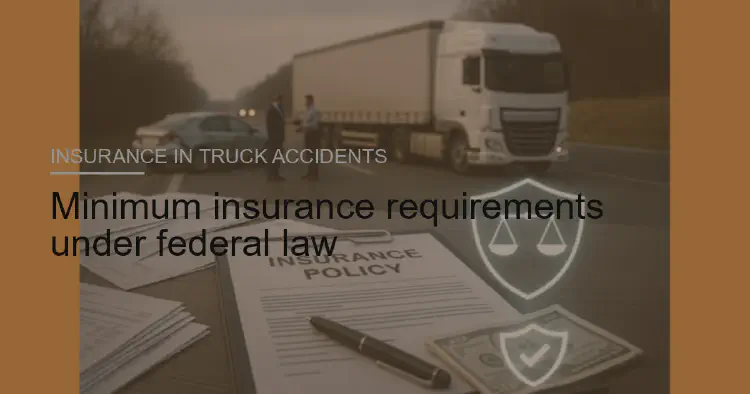
Minimum insurance requirements under federal law
To ensure that victims of truck accidents can be compensated for damages, federal law mandates minimum levels of insurance coverage for all commercial carriers engaged in interstate commerce.

To ensure that victims of truck accidents can be compensated for damages, federal law mandates minimum levels of insurance coverage for all commercial carriers engaged in interstate commerce.
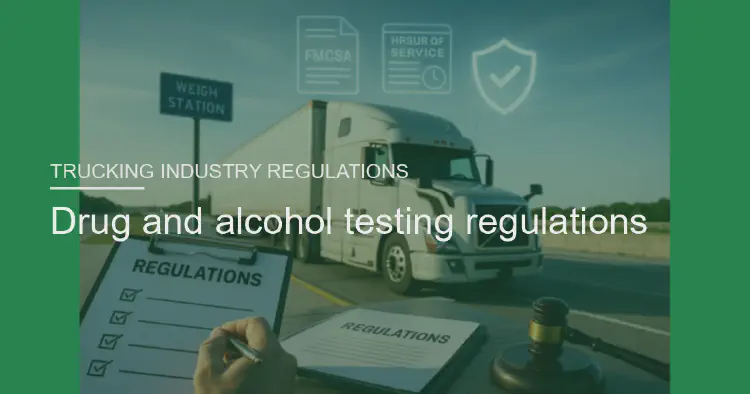
Because of the enormous risks posed by impaired driving, federal law requires strict drug and alcohol testing for commercial truck drivers. These rules are central to ensuring roadway safety and accountability in the trucking industry.
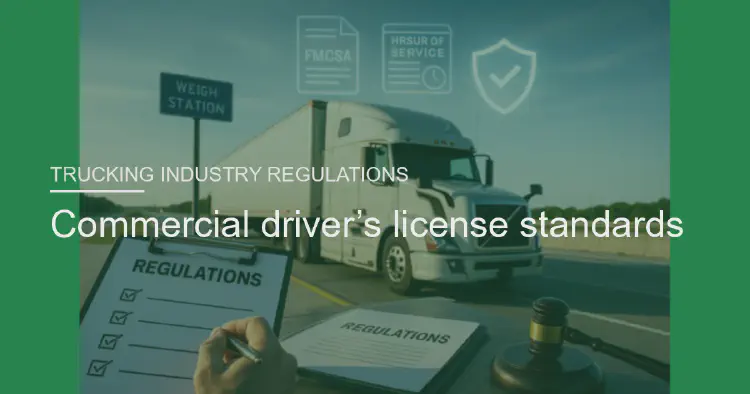
Operating a commercial truck requires far more training and responsibility than driving a passenger car. The U.S. has established strict Commercial Driver’s License (CDL) standards to ensure only qualified and fit drivers handle large trucks.
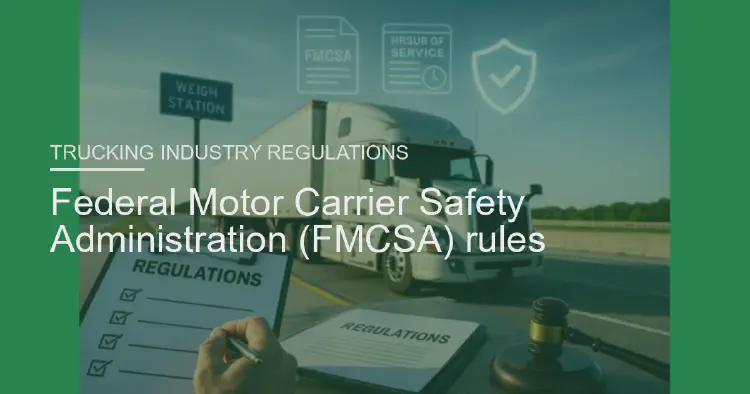
The Federal Motor Carrier Safety Administration (FMCSA) is the central authority for trucking regulation in the United States. Its rules are designed to reduce crashes, injuries, and fatalities involving large commercial vehicles.
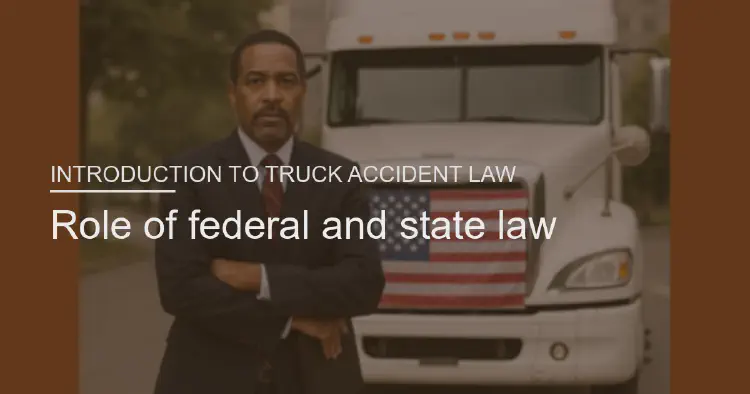
Truck accident cases in the United States operate within a dual legal framework shaped by both federal and state laws. Understanding how these layers interact is essential for determining liability and compliance.